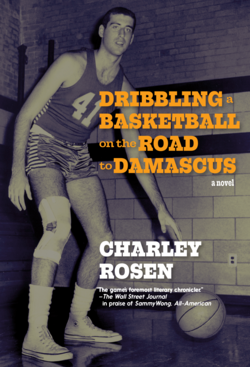A memoir of hard lessons learned in the racially segregated and often outright racist NBA of the early ‘60s by celebrated NBA player and the first Black Coach of the Year, Ray Scott.
Introduced by Earl "the Pearl" Monroe
“There’s a basic insecurity with Black guys my size,” Scott writes. “We can’t hide and everybody turns to stare when we walk down the street. … Whites believe that their culture is superior to African-American culture. ... We don’t accept many of [their] answers, but we have to live with them.”
Ray Scott was part of the early wave of Black NBA players like Bill Russell, Wilt Chamberlain, and later Kareem Abdul-Jabbar, who literally changed how the game of professional basketball is played—leading to the tremendously popular financial blockbuster the NBA is today. Scott was a celebrated 6’9” forward/center after being chosen by the Detroit Pistons as the #4 pick of the 1961 NBA draft, and then again after he was named head coach of the Pistons in October 1972, winning Coach of the Year in the spring of 1974—the first Black man ever to capture that honor.
Scott’s is a story of quiet persistence, hard work, and, most of all, respect. He credits the mentorship of NBA player and coach Earl Lloyd, and talks about fellow Philly native Wilt Chamberlain and friends Muhammad Ali and Aretha Franklin, among many others. Ray has lived through one of the most turbulent times in our nation’s history, especially the time of assassinations of so many Black leaders at the end of the 1960s. Through it all, his voice remains quiet and measured, transcending all the sorrows with his steadiness and positive attitude. This is his story, told in collaboration with the great basketball writer, former college player and CBA coach Charley Rosen.
Remembering Charley Rosen (1941-2025)
We're very sad to share the news that Seven Stories author, former basketball player, and minor-league coach, Charley Rosen, has passed away at age 84. Below, our editorial director, Dan Simon, shares a few words about his literary collaborator, colleague, and friend.
To celebrate Rosen's life and legacy, we're offering free downloads of two of his books through the end of the weekend: The House of Moses All-Stars and The Wizard of Odds.
Ps. The New York Times has published a particularly touching — and thorough — obituary to Rosen. We'd love you to read that too. You can do so here (gift link).
A Note From Dan Simon
Difficult to write about Charley Rosen, who died last Saturday at the age of 84. It’s the rare author who brings a larger human story to the daily drama of professional—or college—sports. Charley Rosen did that time and time again. He knew the game in and out, having played for Hunter College and then coached in the CBA and for college teams. He knew everyone in the world of basketball and everyone in basketball knew him. He loved the game and the people who kept it alive.
Charley was always writing, literally nothing could stop him. Up until six weeks ago he was writing away on his next book. And he believed in every book he wrote. The best of them — The House of Moses All-Stars, The Wizard of Odds, to name just two of the more than 30 books he wrote — are teeming with life. And no one could describe game action the way Charley could. The only thing comparable that I know of is Nelson Algren describing the pummeling that goes on in the ring.
A great writer will try each time to outdo themselves in every book, and succeeds in accomplishing the impossible at least some of the time. That was Charley.
His latest book, a coming-of-age basketball novel called Dribbling a Basketball to Damascus, drawn heavily from his own life, will be released on October 28th. And The Fight Game in Black and White, by legendary NBA player and coach Ray Scott, with Charley as his wingman, comes out next summer.
Last spring I asked him if he was watching the playoffs. “No way,” he said, “why would I? Show me a team that plays the game right. They just hoist 3s. Most teams don’t play defense anymore.” One of the true patriots of Hoops Nation, who wasn’t afraid to criticize the country he loved most, RIP Charley Rosen.
—Dan Simon













